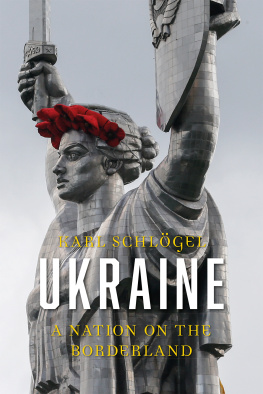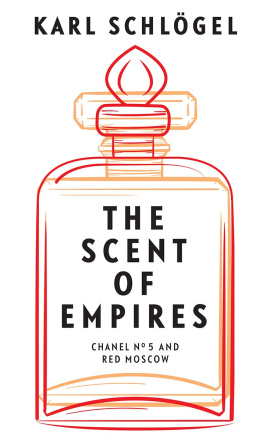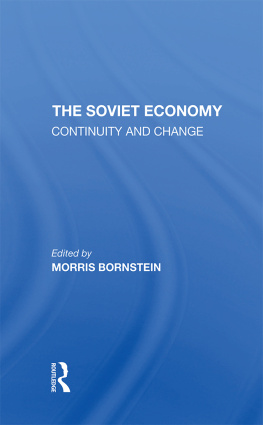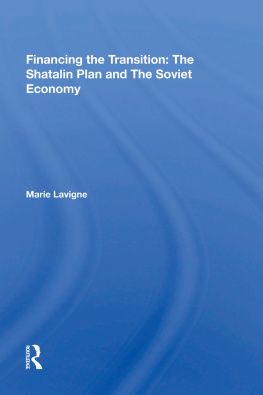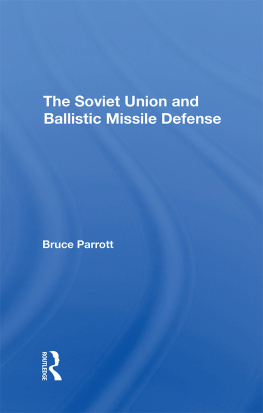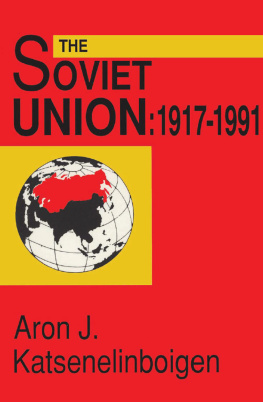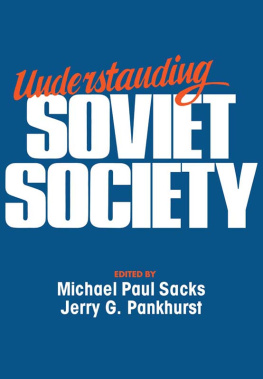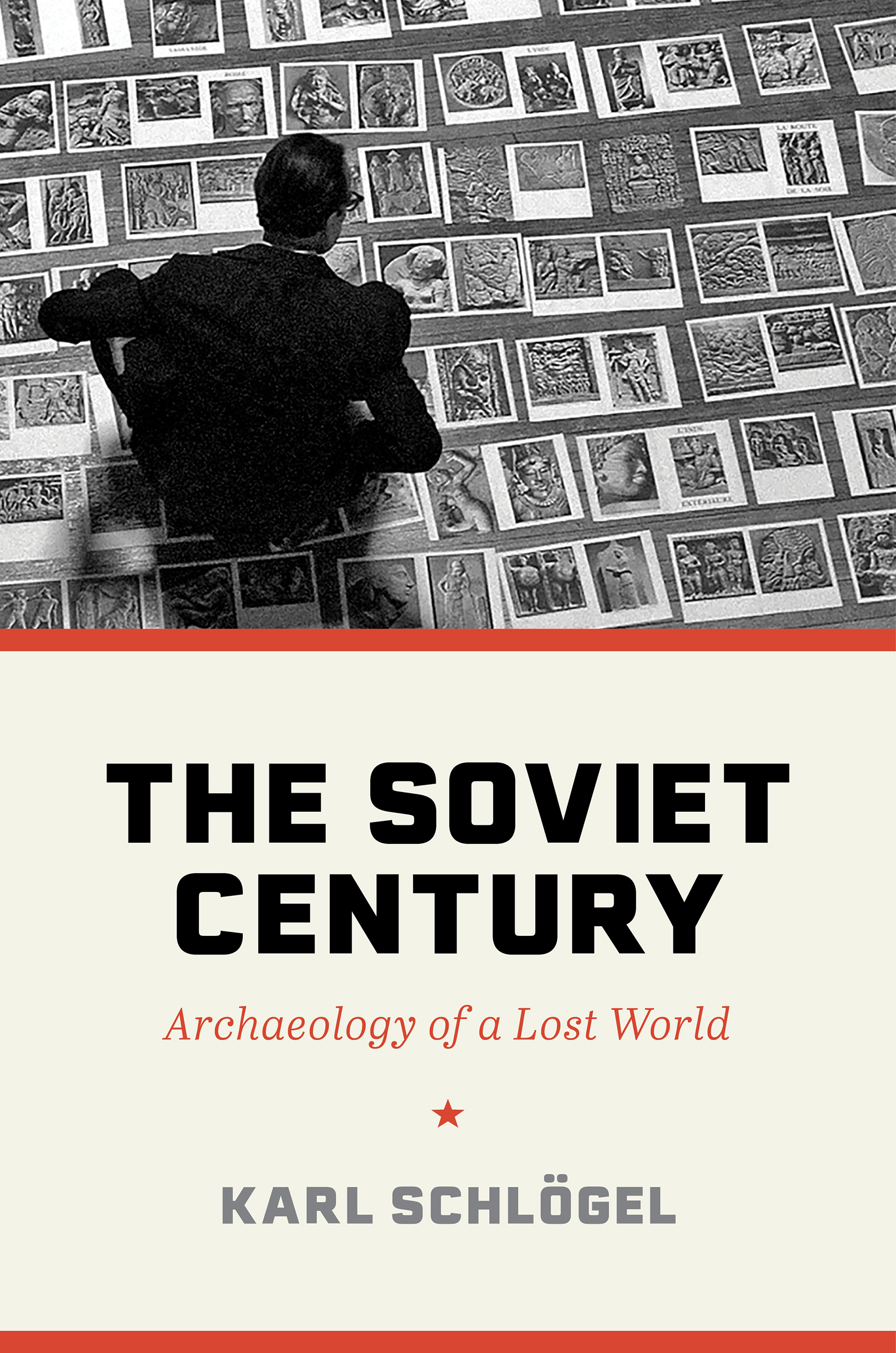THE SOVIET CENTURY

THE SOVIET CENTURY
Archaeology of a Lost World

KARL SCHLGEL
TRANSLATED BY RODNEY LIVINGSTONE
PRINCETON UNIVERSITY PRESS
PRINCETON AND OXFORD
First published in Germany under the title Das sowjetische Jahrhundert, by Karl Schlgel, copyright Verlag C.H.Beck oHG, Mnchen, 2018
English translation copyright 2023 by Princeton University Press
Princeton University Press is committed to the protection of copyright and the intellectual property our authors entrust to us. Copyright promotes the progress and integrity of knowledge. Thank you for supporting free speech and the global exchange of ideas by purchasing an authorized edition of this book. If you wish to reproduce or distribute any part of it in any form, please obtain permission.
Requests for permission to reproduce material from this work
should be sent to
Published by Princeton University Press
41 William Street, Princeton, New Jersey 08540
99 Banbury Road, Oxford OX2 6JX
press.princeton.edu
All Rights Reserved
ISBN 978-0-691-18374-9
ISBN (e-book) 978-0-691-23238-6
Version 1.0
British Library Cataloging-in-Publication Data is available
Editorial: Priya Nelson, Thalia Leaf, Barbara Shi, and Emma Wagh
Production Editorial: Jill Harris
Jacket Design: Lauren Michelle Smith
Production: Danielle Amatucci
Publicity: James Schneider and Kate Farquhar-Thomson
Jacket photo: Film still from Dennis Adamss Malrauxs Shoes, 2012, courtesy of Kent Fine Art, New York
For my wife, Sonja Margolina,
who has always both inspired me and challenged me
CONTENTS
- xi
- xiii
- xvii
TRANSLATORS ACKNOWLEDGEMENTS
I wish to express my gratitude to Angela Livingstone for help with Russian transliteration and her part-translation of Yuly Kims poem in the chapter on Moscow kitchens. I am grateful to Professor Ralph Cleminson for a brief but illuminating conversation. Help and encouragement from Benjamin Livingstone and Professor Sonia Livingstone were immensely supportive. I owe thanks also to Karl Schlgel for his prompt and kind replies to my queries. I am deeply indebted to the Princeton editing team led by Jill Harris, who oversaw the process with tact and consideration. In a volume containing references in multiple languages, Irina du Quenoy successfully devised a system for harmonising the transliterations of Russian names and words. My greatest debt is to Kim Hastings, who meticulously scrutinised my translation, correcting stylistic and grammatical slips, removing Germanicisms and making imaginative suggestions.
Translator notes appear in square brackets throughout. When available, English translations have been cited in notes. The transliteration of Russian words and names in the text has been designed to be as user-friendly as possible. Endings have been simplified. Names familiar in English have retained their customary spellings (Khrushchev, Gorbachev). Texts cited in German or English and, more rarely, French retain their original spellings.
ABBREVIATIONS
ARA American Relief Administration
BAM Baikal-Amur Mainline
BSE (Bolshaya sovetskaya entsiklopediya), Great Soviet Encyclopedia
CEC Central Executive Committee
Cheka (VChK) Russian Extraordinary Commission for Combating Counter-Revolution, Profiteering and Corruption (19171922), the first in a series of Soviet secret-police organisations
CIAM International Congress of Modern Architecture
CPSU Communist Party of the Soviet Union
CSKA Central Sports Club of the Army
Dalstroy (Glavnoe Upravlenie stroitelstva Dalnego Vostoka/Severa), Construction Trust of the Far East, or alternatively, of the Far East and North (19311957)
DniproHES (Dniprovskaya Hidroelektrostantsiya), also known as Dniprostroy (19291932), Dnieper Hydroelectric Station
DOSAAF (Dobrovolnoe obshchtestvo sodeistviia armii, aviatsii i flotu), Volunteer Society for Cooperation with the Advancement of Army, Airforce and Navya paramilitary sport organisation
FSB Federal Security Service, the chief Russian security agency since 1995
GDR German Democratic Republic (19491990)
GOELRO State Commission for the Electrification of Russia
Gosplan State Planning Commission
GPU See OGPU
GTO (Gotov k trudu i oborone SSSR), Ready for Labour and Defence
GUM Department store
KEPS Commission for the Study of Natural Productive Forces
KGB (Komitet Gosudarstvennoy Bezopasnosti), Committee for State Security (19471991)
LFZ Leningrad Porcelain Factory trademark
MVD Ministry of Internal Affairs
Narkomfin Peoples Commissariat for Finance
Narkompros Peoples Commissariat for Enlightenment, i.e., education
Narkomtrud Peoples Commissariat for Labour
Narkomvneshtorg Peoples Commissariat for Foreign Trade
NEP New Economic Policy (19211928)
NKGB Peoples Commissariat for State Security. It became the MGB in 1946. Both it and the MVD were headed by Lavrenty Beria until 1953.
NKTB (Narkomtyazhprom), Peoples Commissariat for Heavy Industry
NKVD (Narkomvnudel), Peoples Commissariat for Internal Affairs. Originally established in 1917 and tasked with conducting regular police work and overseeing the countrys prisons and labour camps. It took over the OGPU (the secret police) in 1934 and thus acquired a monopoly over law enforcement activities until the end of the Second World War. It became the MVD in 1946.
NOT Scientific Organisation of Labour
NPO VILAR All-Russian Scientific Research Institute of Medicinal and Spice Plants
NTS (Narodno-trudovoy soyuz rossiyskikh solidaristov), National Alliance of Russian Solidarists, a Russian anticommunist organisation founded in 1930 by a group of young Russian anticommunist White migrs in Belgrade, Serbia. Its centre for underground revolutionary activity was dissolved in 1991 after the fall of the Soviet Union.
OGPU (GPU 19221923), an organisation for investigating and combating counterrevolutionary activities in the former Soviet Union, replacing the Cheka. It became the NKVD from 1934.
OKB (Osoboe konstruktorskoe byuro), Special Construction Office
OSOAVIAKhIM (Obshchtestvo sodeistviia oborone aviatsionnomu i himicheskomu stroitelstvu), Association for the Advancement of Defence, Aviation and Chemistry (precursor of DOSAAF)
OVIR Office of Visas and Registration
Pomgol Hunger Relief Committee
ROSTA Russian Telegraph Agency
RSFSR Russian Soviet Federated Socialist Republic
Sevvostlag (Severo-Vostochny ispravitelno-trudovoy lager), the North-Eastern Corrective Labour Camps
Shirkost (Soyuzny trest vysshey parfiumernoy, shirovoy, mylovarennoy i sinteticheskoy produktsii), Union Trust of Distinguished Perfumery, Fat-processing, Soap-making and Synthetics Production
SLON Solovki special camp
Spetskhran Special Storage Section, i.e., for books with limited access
SR Socialist Revolutionaries
STO Council for Work and Defence
STON Solovetsky prison
TASS Russian News Agency
TseKUBU Central Commission for the Improvement of the Everyday Lives of Scientists
TsSU (Tsentralnoe statisticheskoe upravlenie), Central Administration of Statistics


